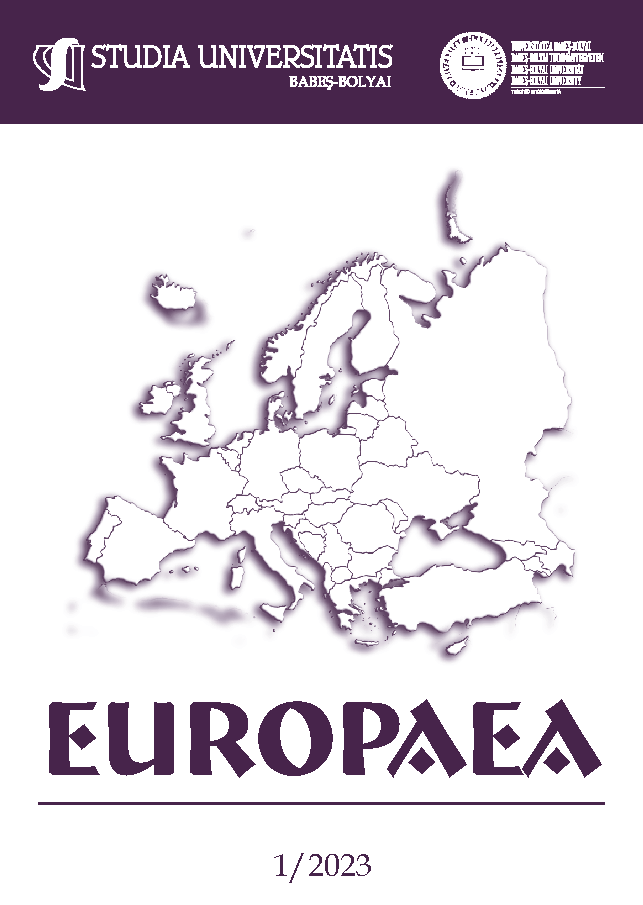SANDINISTA REVOLUTION: A POSTCOLONIAL APPROACH TO USA INTERVENTIONISM
DOI:
https://doi.org/10.24193/subbeuropaea.2023.1.10Keywords:
Latin America, postcolonialism, Sandinista Revolution, discourse analysis, United States of America.Abstract
The Sandinista Revolution was a watershed moment in Nicaraguan history that forever altered the course of the country's history. First, it dismantled the Somoza family's dynasty, which had ruled for 43 years, not all of them consecutively, and established a political system dependent on their despotic regime. Second, and more significantly for international relations, the Sadinistas' denunciation of the neo-colonialism committed by the leader of the western democracies was a direct attack on US interventionism in Central America. Unfortunately, it was also the point at which the FSLN established its roots in Nicaraguan society and transitioned from a socialist movement to an authoritarian regime under Daniel Ortega. In order to analyse these evolutions of events I propose a postcolonial theoretical approach. The fact that postcolonialism is a relatively new addition to the international relations theory that first appeared in literature is one of the primary justifications for why this theoretical approach relies on information from native authors. This theory mainly focuses on the former colonies and criticises how the colonial past and present interactions with the former colonists have an impact on how those colonies have developed. I will examine the key ideas of these approaches in the international arena with respect to the particular case of the Sandinista Revolution in Nicaragua.
References
Fanon, Frantz (2008), “Black Skin, White Masks”, London: Pluto Press.
Gobat, Michel (2005), “Confronting the American Dream Nicaragua under U.S. Imperial Rule”, London: Duke University press.
Gilderhus, Mark T. (2006), “The Monroe Doctrine: Meanings and Implications” in Presidential Studies Quarterly, Volume 36, Issue 1, pp. 5-16, doi: https://doi.org/10.1111/j.1741-5705.2006.00282.x.
Intersimone, Luis Alfredo (2016), “Neocolonialism in Latin America” in The Encyclopedia of Postcolonial Studies, January, pp. 1-6, doi: https://doi.org/10.1002/9781119076506.wbeps271.
Juan Jr., E. San (1998), “Beyond Postcolonial Theory”, New York: Palgrave Macmillan.
La Botz, Dan (2018), “What Went Wrong? The Nicaraguan Revolution: A Marxist Analysis”, Leiden: Haymarket Books.
Langley, Lester (2016), “Anti-Americanism in Central America” in The American Academy of Political & Social Science, Volume 497, Issue 1, pp. 77-88, doi: https://doi.org/10.1177/0002716288497001007.
Miranda, Wilfredo (2022), “Nicaragua’s Daniel Ortega escalates diplomatic crisis with US and Europe”, El País, 3 October 2022, https://english.elpais.com/international/2022-10-03/nicaraguas-daniel-ortega-escalates-diplomatic-crisis-with-us-and-europe.html, accessed in 10th January 2023.
Moore-Gilbert, Bart (1997), “Postcolonial Theory Contexts, Practices, Politics”, New York: Verso.
Pietz, William (1988), “The "Post-Colonialism" of Cold War Discourse” in Social Text, No. 19/20, pp. 55-75, doi: https://doi.org/10.2307/466178.
Puig, Salvador Martí (2010), “The Adaptation of the FSLN: Daniel Ortega's Leadership and Democracy in Nicaragua” in Latin American Politics and Society, Volume 52, Issue 4, pp. 79 – 106, doi: https://doi.org/10.1111/j.1548-2456.2010.00099.x.
Ricard, Serge (2006), “The Roosevelt Corollary” in Presidential Studies Quarterly, Volume 36, Issue 1, pp. 17-26, doi: https://doi.org/10.1111/j.1741-5705.2006.00282.x.
Ryan, David (2004), “Americanisation and anti-Americanism at the periphery Nicaragua and the Sandinistas” in European Journal of American Culture, Volume 23 Number 2, pp. 111-124, doi: https://doi.org/10.1386/ejac.23.2.111/0.
Said, Edward (2019), “Orientalism”, London: Penguin.
Schroeder, Michael J. (2005), “Bandits and blanket thieves, communists and terrorists: the politics of naming Sandinistas in Nicaragua, 1927 – 36 and 1979 – 90” in Third World Quarterly, Volume 26, Issue 1, pp. 67-86, doi: https://doi.org/10.1080/0143659042000322919.
Scott, James M. (1997), “Interbranch Rivalry and the Reagan Doctrine in Nicaragua” in Political Science Quarterly, Vol. 112, No. 2 (Summer, 1997), pp. 237-260, doi: http://www.jstor.org/stable/2657940.
Seth, Sanjay (2011), “Postcolonial Theory and the Critique of International Relations” in Millennium - Journal of International Studies, Volume 40, Issue 1, pp. 167–183, doi: https://doi.org/10.1177/0305829811412325.
Seth, Sanjay (2013), “Postcolonial theory and critique of International Relations”, New York: Routledge.
Sierakowski, Robert J. (2019), “Sandinistas: A Moral History”, South Bend: University of Notre Dame Press.
Sylvester, Christine (2014), “Post-colonialism” in Baylis, John, Smith, Steve and Owens, Patricia (eds.), The Globalization of World Politics: An Introduction to International Relations 6th edition, Oxford: Oxford University Press.
Walker, Thomas W. and Wade, Christine J. (2011), “Nicaragua: Living in the Shadow of the Eagle”, Boulder: Westview Press.
Zimmermann, Matilde (2000), “Sandinista: Carlos Fonseca and the Nicaraguan Revolution”, London (Duke University Press).
Downloads
Published
How to Cite
Issue
Section
License
Copyright (c) 2023 Studia Universitatis Babeș-Bolyai Europaea

This work is licensed under a Creative Commons Attribution-NonCommercial-NoDerivatives 4.0 International License.






